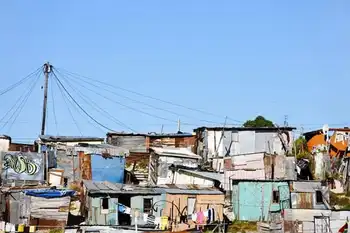Councillors to see what future holds for Plasco
By Ottawa Citizen
Protective Relay Training - Basic
Our customized live online or in‑person group training can be delivered to your staff at your location.

- Live Online
- 12 hours Instructor-led
- Group Training Available
Rod Bryden, chief executive of Plasco Energy Group, and city manager Kent Kirkpatrick was at a briefing for councillors to answer questions about a staff report on the technology, which breaks down garbage into a fuel gas that generates electricity.
The city is in a joint venture with Plasco to test the technology, with a plant that has been operating at the Trail Road landfill since January. The report deals with the next steps, including developing an agreement for a commercial-scale operation. Mr. Bryden said the Trail Road plant is going "very well."
There is considerable excitement about Plasco's technology at City Hall and in municipalities across Canada because expanding landfills, or building new ones, is such a difficult and expensive exercise. Toronto spent $220 million for a new landfill last year.
In Ottawa, garbage has become a huge issue as residents objected to the size, smell and possible environmental consequences of building huge landfill sites, such as Waste Management's site on Carp Road.
"Mr. Bryden's technology has the municipal world on the edge of its seat," said Alta Vista Councillor Peter Hume, who is chairman of council's planning and environment committee and heavily involved in municipal associations.
Mr. Hume said there have been some hurdles at the Plasco test site, but they have only led to "refinements." Municipal officials across Canada believe Plasco may have part of the solution to the garbage problem.
The Plasco gasification process produces three byproducts: an inert slag used as road aggregate or for paving stones, sulphur that can be used to condition soil, and a small amount of heavy metal that is taken to a landfill. The power generated is considered green energy, which will earn top dollar on the electricity market in Ontario.
"All eyes are on Ottawa. There's quite a buzz about the potential for this technology," said Mr. Hume.
In the past, Mr. Bryden has said the company would be interested in building small plants in Ottawa, the smallest taking 200 tonnes of garbage a day. In 2005, according to the city, residences alone produced about 585 tonnes of landfill garbage a day, filling 25,000 trucks a year. Having plants located through the city reduces trucking and eases the load on the power grid.











